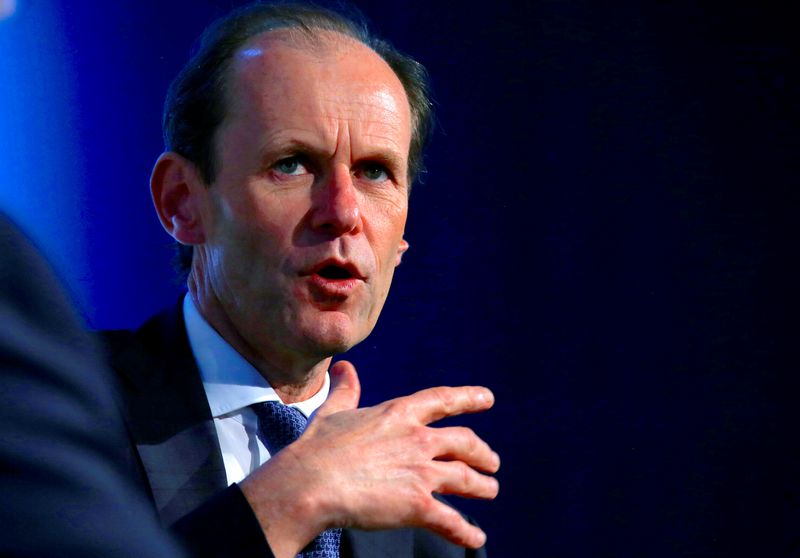
© Reuters. FILE PHOTO: Australia and New Zealand Banking Group Chief Executive Shayne Elliott speaks during a Reuters Newsmaker event in Sydney, Australia, November 30, 2016. REUTERS/David Gray
SYDNEY (Reuters) – Australia and New Zealand Banking Group’s CEO said on Monday the latest turmoil in the global banking system had the potential to trigger a financial crisis though it was early to predict it could bring one similar to that in 2008.
Authorities around the world are on high alert for the fallout from the recent turmoil at banks following the collapse of Silicon Valley Bank and Signature Bank (NASDAQ:) in the U.S. and the emergency takeover of Swiss lender Credit Suisse.
“It’s a crisis for some obviously, but is it a financial crisis, who knows? Does it have the potential to be one? Yes, it does have the potential to be one,” CEO Shayne Elliott said in an interview on the bank’s website.
But he said it was premature to assume the current condition could result in “another GFC”, referring to the global financial crisis around 15 years ago that plunged the world’s major advanced economies into their worst recession since the Great Depression in the 1930s.
“This is a different issue. This is really to do with the global war on inflation and how central banks are raising rates very quickly in order to combat that, and that has casualties,” Elliott, the top executive at the country’s no.4 lender, said.
Global regulators have acted much quicker to support banks this time, having learned lessons from the prior crises, and most have higher levels of liquidity to stem any fallout, Elliott said.
“Having said all that, it’s clearly not over. I don’t think you can sit here and say, ‘Well, that’s all done, Silicon Valley Bank and Credit Suisse and, you know, life will go back to normal’. These things tend to roll through over a long period of time.”
Treasurer Jim Chalmers has said Australia was in a good position to hold out against some of the volatility because its banks were well capitalised and had strong liquidity.





